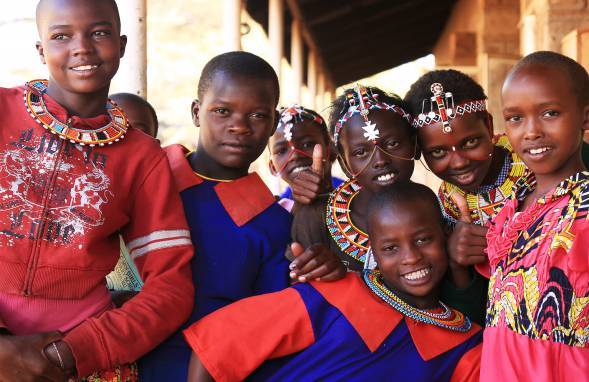Tarime — Eighteen year-old Mariam Chacha is a very worried young girl, now that the season for female genital mutilation (FGM) has just begun.
In Tarime District, Mara Region, FGM is still a thorny issue, though the government has outlawed the practice and awareness campaigns have been conducted extensively.
To make it worse, FGM is a camouflaged ritual, as it is conducted alongside male circumcision. It is usually accompanied by traditional ceremonies in which boys or girls who are circumcised are awarded gifts mostly given in a form of cash.
The season takes about a month (almost the whole of December). Mariam has, however, insisted that she is not ready to undergo the FGM, which subjects girls to humiliation and severe pains during and after the cut. “I will escape even if it means running away from home at night.
I know preparations are underway at home and they expect me to take part in the ritual,” Mariam told the ‘Daily News’ at her home village of Nyabirongo in Susuni ward, on Friday last week. She hinted that she might seek a safe haven at the Association of Termination of Female Genital Mutilation (ATFGM) Masanga centre about 50 km away from her home village.
“It is my father who is forcing me to be circumcised, mother does not support the idea,” she pointed out. Mariam is one of the many girls who have resolved to say no to FGM and child marriage, thanks to the support from the European Union (EU) which is helping run a project that seeks to end FGM and child marriage in 21 villages in Mara Region.
The project is being implemented by Plan International in collaboration with Children’s Dignity Forum (CDF), a local NGO in five wards of Susuni, Sabasaba, Sirari, Matongo and Nyamwaga.
Apart from combating FGM and child marriage, the project had also helped to equip young women with entrepreneurship and business management skills so as to empower them economically. Mariam is among 14 girls who had formed Maisha Club to fight FGM and child marriage under the EU funded project which kicked off in early 2015.
There are such clubs in every targeted ward “We are providing anti- FGM and child marriage education to school and out of school girls “, she said.
Regina Marwa (19) another beneficiary of the project said despite being a victim of teenage pregnancy she is now happy that she had been given training on entrepreneurship and business skills . “I know what is entrepreneurship and how to market products and our plan is to start a soap making business “, Rejina also a resident of Susuni ward said.
Narrating her story, Regina said she he was forced to get married when she was 15 year-old but rejected. Although she later became pregnant and delivered a baby girl when she was 18 years old. Currently Rejina is one of the young mothers leading on-going battle against FGM, child marriage and teenage pregnancy under the project.
Mr Shaban Shaban, the Project Coordinator from Plan International says the target has been to reach 900 girls through sports and that Tackle Africa is one of the key partners taking part on the sports aspect.
Tackle Africa is a UK organization that uses sports in behavioural change. Mara Regional Small Industry Development Organization (SIDO) experts have also been involved to provide entrepreneurship training to a good number of young women who are victims of FGM, child marriage, teenage pregnancy, school drop-outs and widows under the project. “Until today a total of 130 young women have been given entrepreneurship training and how to make soap and batik” Mr Shaban said.
We expect to train 30 more girls and give them start up kits (soap making materials) , he added. Ms Kambibi Kamugisha, the Project Officer from CDF said once empowered, the young women stand in a better position to devote part of their time to fight FGM and child marriages in their villages. “Despite becoming self-reliant if empowered they get an opportunity to create awareness against FGM and child marriage. It becomes easy for them”, Ms Kambibi explained.
According to her many groups of girls had been supported under the project. She insisted that everything must be done to win FGM war because it cuts educational dreams of many girls in the area .
“Once a girl is circumcised here , the community assume that she is ready for marriage even if she is under 18, therefore saving them from FGM means saving them from child marriage and enable them to achieve their educational dreams”, said Ms Kambibi.
Peer educators are used to provide reproductive health education (elimu ya afya ya uzazi) to school girls and out of school girls, according to Mr Shaban. Implementation of the project has further seen another remarkable progress of establishing child protection teams from village to district levels.
“Besides establishing district child protection team, all 21 villages in the five wards have child protection teams and the project has also helped to improve service delivery at the gender and children desk office in Tarime” Mr Shaban said .
The targeted society and leaders including members of Wards Development Committees (WDCs) , he said have also been enlightened on girl child rights and their roles in safeguarding rights of children.
Implementation of the project is still underway with Plan International and CDF committed to attain set objectives, a move that will play significant role to protect girls from forced FGM and child marriage.

